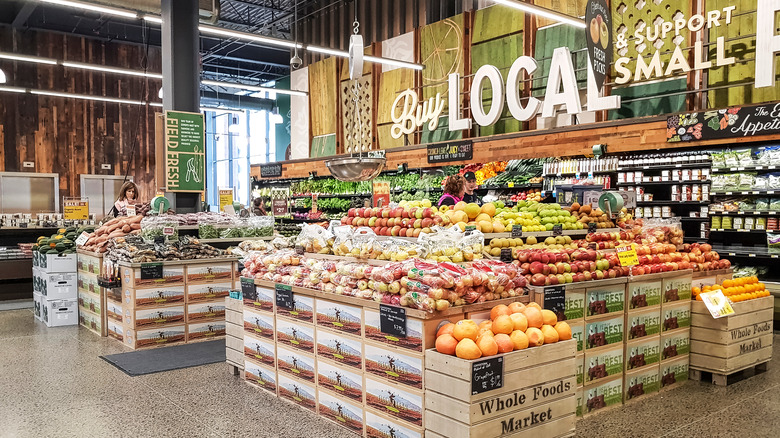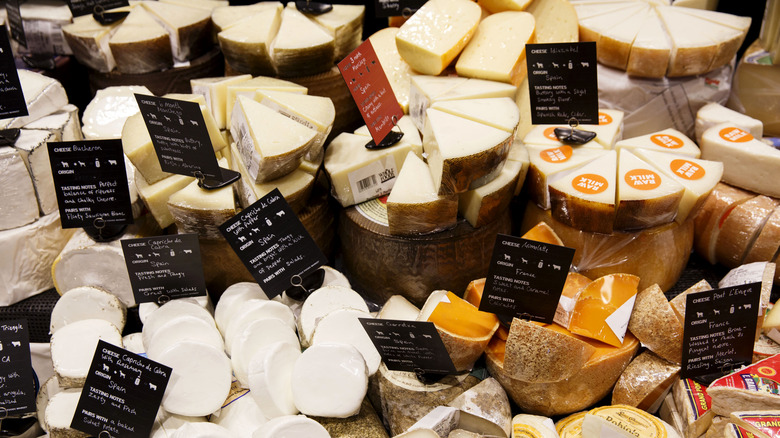Whole Foods Used Prison Labor For This Product Until 2015
Prison labor — work done by people who are incarcerated — is a booming industry in America's prison system. There are about 2.3 million incarcerated individuals in this country alone (via Prison Policy). A staggering 74% of these inmates aren't really even inmates at all, but rather people who have not been convicted of a crime and are being held on pretrial detention (and thus technically still legally innocent), per Prison Policy Initiative. Many of these people are given the option, or in some cases, are simply forced to work while incarcerated, in a wide range of positions — from custodial all the way to the growing artisanal foods market.
According to Kent State Online, inmates make between 14 cents and two dollars per hour in America, with the national average being just 63 cents per hour. In eight states, inmates are paid absolutely nothing for their work. And in some states, these meager wages are further reduced by some programs using inmates' pay to fund things like room and board, court fees, and programs like the Crime Victims Reparations Fund.
For many inmates, the pennies they make are even more challenging to hold on to when basic necessities aren't provided; as Kent State Online notes, an inmate in Colorado would have to work for two weeks just to afford a single box of tampons. Michael Allen, the founder of End Mass Incarceration Houston, told NPR, "People are incarcerated and then forced to work for pennies on the dollar — compare that to what the products are sold for."
Goat cheese and tilapia were produced by prison labor
In 2015, Whole Foods sold goat cheese from Haystack Mountain Goat Dairy, which uses inmates to milk goats, as well as tilapia from Quixotic Farming, which uses prison labor to raise its fish (via NPR). Both companies partner with Colorado Correctional Industries to provide the labor. But while programs like CCI purport to set up inmates with education and work training (and that may be true to a certain extent), people like Michael Allen consider them to be exploitation, since the inmates are paid almost unfathomably low wages. However, according to the BBC, Whole Foods stopped this practice in April of 2016 in response to protests and pushback after more than five years of purchasing the cheese and fish.
As The Counter points out, customers are often unaware that some of the items they consume are the product of prison labor, since prisons don't usually broadcast which companies use their goods and companies don't tend to advertise it, either. Moreover, as The Counter notes, shoppers may want the option to avoid these types of goods as a way of opting out of supporting the prison system, and instead choose to give their money to companies who pay their employees living wages.

